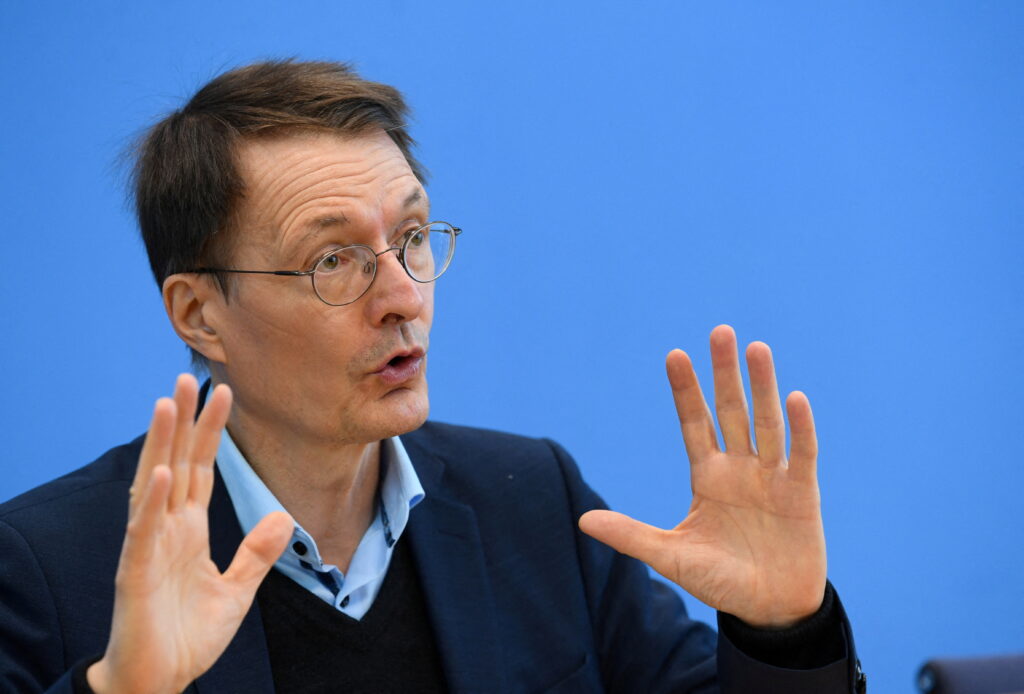205
Germany will not end mandatory isolation for most people who catch Covid -19, the health minister said on Wednesday, reversing course after concerns were raised that lifting quarantine restrictions would suggest the pandemic was over.
“Coronavirus is not a cold. That is why there must continue to be isolation after an infection,” Health Minister Karl Lauterbach said on Twitter, adding he had made a mistake by suggesting an end to mandatory quarantine.
Under the existing rules, people with Covid must isolate for at least seven days. Lauterbach suggested last week a shift to a voluntary five-day period of self-isolation with the recommendation of a Covid test at the end of that time.
The idea of ending quarantine, except for medical staff, had emerged after Covid cases soared in recent weeks, hitting staffing in hospitals and many other workplaces.
Lauterbach said he had made the proposal to try to ease the burden on the health authorities that have to order quarantine and isolation, but he said on Wednesday that it sent the wrong signal that the pandemic was over and the danger was past.
“That is not the case,” he told a news conference, noting that more than 300 people were still dying a day.
People who have had contact with an infected person will no longer be compelled to quarantine from May 1, although they will still be strongly encouraged to do so.
Daily infections have fallen in the last week or so, with 214,985 new infections reported on Wednesday, about 20% fewer than a week ago. That took total cases since the pandemic began beyond 22 million, with 130,708 deaths.
Lauterbach has come under fire for the policy reversal, but he said on Wednesday he would not resign.
The government has also been under pressure for a failure to reach a cross-party consensus on making vaccinations mandatory.
Lauterbach said he expected parliament to approve legislation on Thursday that would compel those over 60 to be vaccinated by Oct. 1, leaving it open whether shots might still be made compulsory for younger people at a later date.
REUTERS


